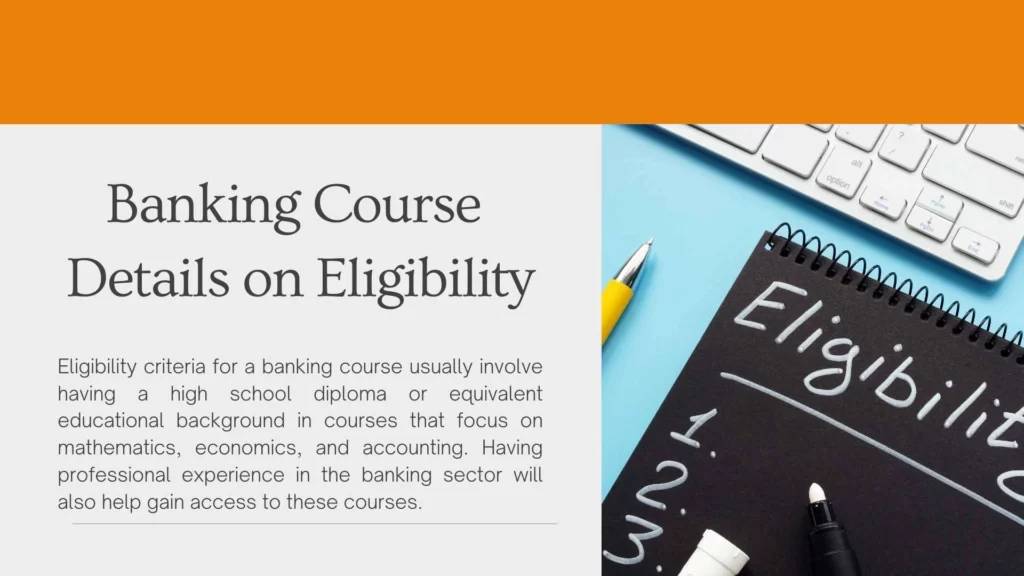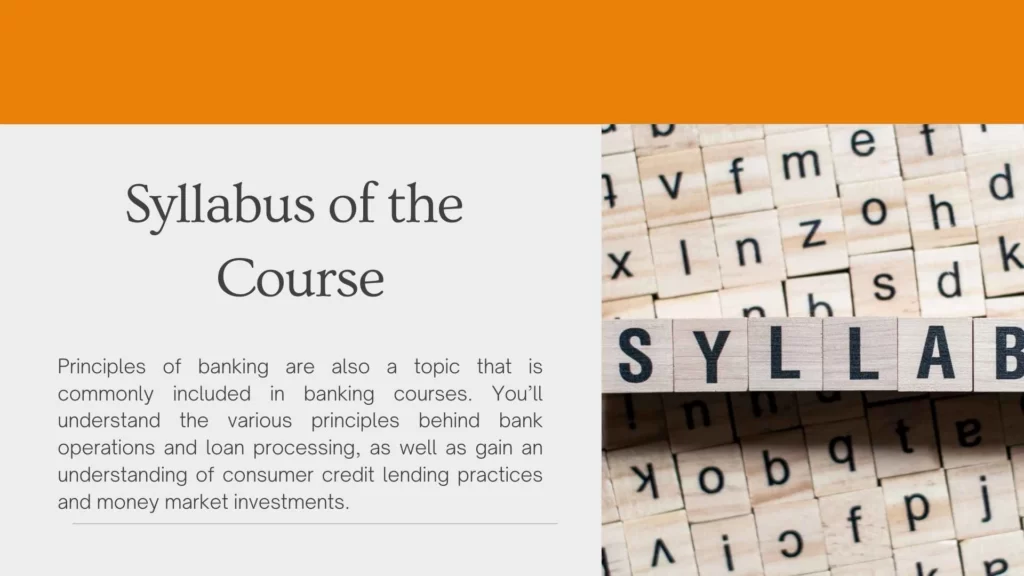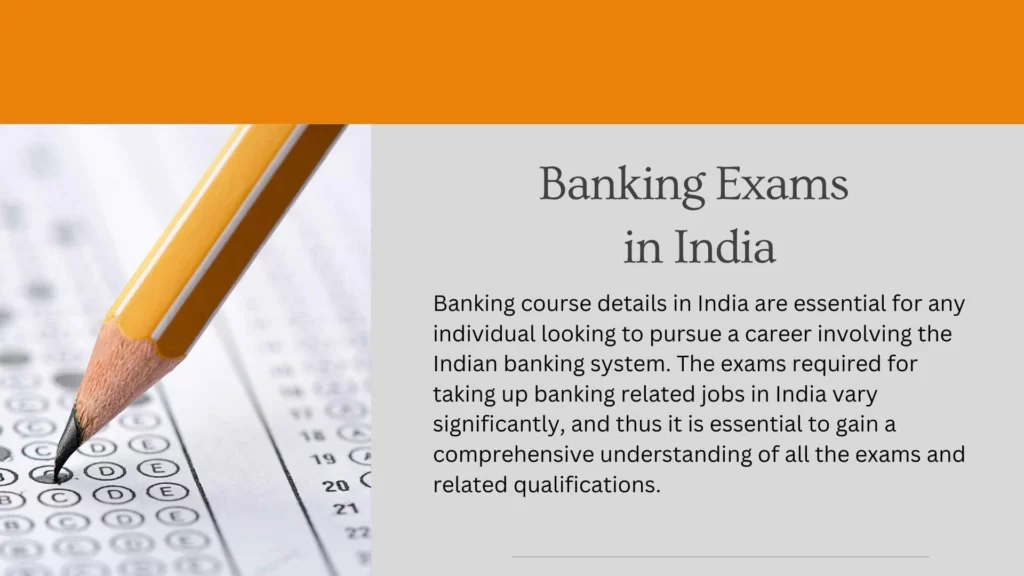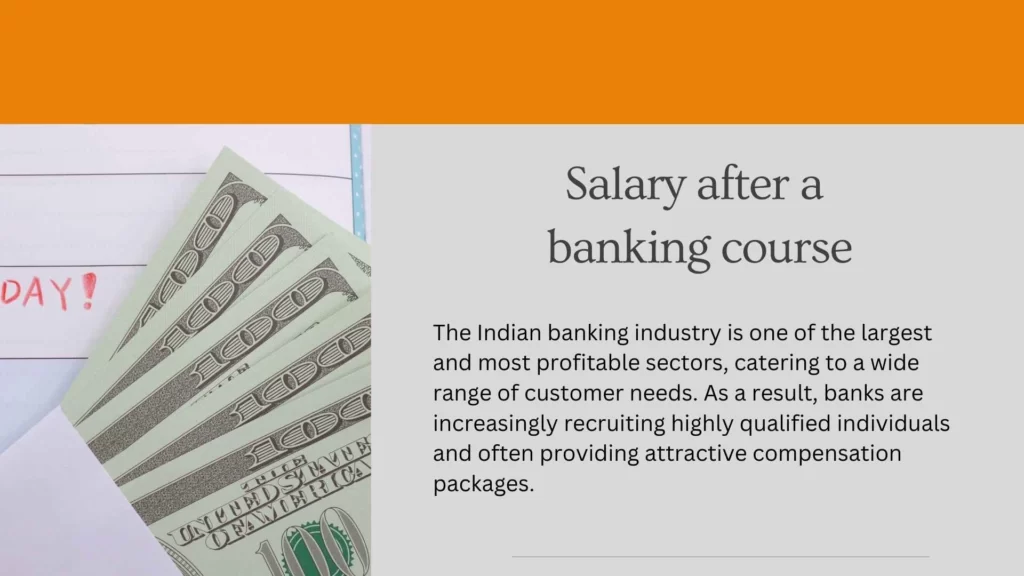Introduction
Are you looking to enter the world of banking and finance? The first step to success might be enrolling in a banking course. Banking course details cover a variety of topics, from technical financial skills to regulations and compliance requirements. In this article, we’ll introduce you to the types of banking courses available, the different fields of study, and the content each banking course details.
There are several types of banking courses available depending on your interest level, desired career path and educational goals. From entry-level courses such as basic finance and savings accounts management to more advanced topics like wealth management and international banking, students have plenty of options to choose from.
There is also the option of academic courses for those interested in understanding the underlying framework driving the field. For instance, topics can range from microeconomic theory and macroeconomic trends to corporate finance or investments & portfolio management.
In terms of course content within these banking course details, one can typically expect an introduction to core financial concepts such as budgeting, accounting fundamentals, risk assessment and taxation. As many courses require practical knowledge, especially for professional qualifications other topics may include balance sheets analysis, ethics & compliance requirements in different countries or legal aspects related to loan origination.
It is also important for aspiring bankers or finance professionals to understand the rules & regulations governing their field when they decide on taking a particular course. Depending on what institution you choose and where you’re located these regulations may differ slightly so it’s important that you check banking course details beforehand.
Finally, there are many benefits associated with taking a banking-related course even if you’re not planning on pursuing a full-fledged career in this sector.
Know how to become investment banker in india
Why Pursue Banking Courses

For starters, a banking course details can provide you with an in-depth understanding of financial processes and operations.
By taking a comprehensive course that covers topics ranging from international banking and investment fundamentals to money market instruments and accounting principles, you will gain the knowledge necessary to identify and interpret complex banking activities. This increased awareness can prove extremely beneficial to your future endeavours in the field.
Another great perk of pursuing a banking course is that it provides plenty of practical experience for aspiring bankers. Through internships, students are exposed to real world scenarios related to their chosen specialty and gain an understanding of how banks operate on a daily basis. This type of hands-on learning is invaluable for those looking to launch their career in the banking industry.
Pursuing a banking course offers plenty of networking opportunities with other finance professionals who may be useful contacts once you enter the workforce. In addition, many courses have connections with key employers in the field who may be looking for new talent when hiring time comes around. That means that by familiarizing yourself with what’s available through these programs, you can increase your chances of landing your dream job after graduation!
There are countless reasons why taking a banking course should be explored if you’re serious about making it in finance – from gaining comprehensive knowledge on essential topics related to the profession to getting valuable practical experience and expanding your network with other industry players.
Banking Course Details on Eligibility

Are you considering taking a banking course to gain further knowledge in the field of finance? If so, in this part we will provide you with the banking course details you need to understand what qualifications are needed and if the course is right for you.
One of the other banking course details contains the Eligibility criteria for a banking course which usually involves having a high school diploma or equivalent educational background in courses that focus on mathematics, economics, and accounting. Additionally, some courses may require students to take an exam before they can enroll.
Qualification requirements for a banking course vary depending on the institution providing it. However, most programmes generally include topics such as financial markets, international finance and financial engineering, as well as how to use different financial instruments. It is important to check the syllabus ahead of time to ensure that there is enough understanding of the topics that will be covered during the duration of the course.
The banking course details duration typically ranges from six months up to one year depending on the level of study required and whether or not it includes practical elements such as internships or fieldwork. It is important to also factor in additional studying time if needed which may be outside of regular class hours.
The banking course details also provide an opportunity for those who are looking to move into finance related roles or already have experience in this industry and would like more knowledge of various areas in order to progress their career. Whether you are starting out or already have years’ worth of experience in finance, understanding what is required ahead of time can help you decide if this specific programme is right for you before committing your time and money to it.
Have a look at the best investment banker courses
Syllabus of the Course

Talking about the banking course details for the Syllabus. First up, banking courses will often cover bank operations and processes. These classes will teach you the fundamentals of how a bank operates, including topics such as money management, customer service, and finance. Additionally, you’ll learn about important banking laws and regulations that govern the financial industry.
Principles of banking are also a topic that is commonly included in banking courses. You’ll understand the various principles behind bank operations and loan processing, as well as gain an understanding of consumer credit lending practices and money market investments. Understanding these concepts is vital for any future banker!
Additionally, some banking syllabus will include information on bank instruments and products. This could include any type of product or service offered by a bank from checking accounts to mortgages to certificates of deposit (CDs). With this type of knowledge, students will be able to distinguish between different types of products available at different banks and effectively communicate their features with potential customers.
The banking course details also include monetary policy as a part of the syllabus. Knowing monetary policy is essential if one wishes to pursue a career in finance or banking since it greatly affects both domestic and global markets. Jobs like central bankers require deep knowledge in this area.
Financial services and activities are also topics covered in some courses because they are integral to understanding financial markets in general. Students will gain knowledge of financial services such as insurance policies, credit cards, investments portfolios, asset management offerings, etc
Risk management is an integral part of banking, as it involves assessing potential risks involved in any given transaction or investment. Through this course, you will learn how to identify and assess risks, as well as develop strategies to handle them if they do occur. You will also gain an understanding of different types of financial instruments and their associated risks, including derivatives, bonds and stocks.
Technology plays a huge role in modern banking; from automated payments and transfers to fraud detection systems. This course will provide you with an overview of the various tools available for online banking, such as mobile apps and online platforms. It will also give you insight into new technologies such as blockchain that are driving the evolution of traditional banking practices.
As you can see the other banking course details covers the Syllabus of the banking course which has many aspects of modern-day finance to ensure you have a comprehensive understanding of the industry. From risk management to technology, these banking course details provide invaluable knowledge that can easily be applied in any professional setting. So take advantage of this learning opportunity now!
Banking Course Details on Fee Structure
Are you looking for information about banking course details and their fees in India? In this part, we will provide detailed information about banking course details and the associated fees to help you understand what options are available so you can make an informed decision.
Banking course details typically cover topics such as economics, finance, accounting, mathematics, investment banking, risk management and international finance. Depending on the program, you may also learn about customer service principles, loan management and payment systems. It is important to research the program curriculum before enrolling to ensure it meets your needs.
Next, let’s look at the average banking course details fees in India. Generally speaking, online banking courses range from INR 4k-5K. Depending on the length of the program, type of institution and location of the study center tuition fees can vary significantly. Be sure to research various provider offerings carefully when choosing a program to ensure it fits your budget.
Now let’s cover offline banking course details about fees in India. Offline banking courses range from INR 40k-80K depending on many of the same variables as online programs do such as length of the program and institution type. Because the fees can vary so much based on these factors it is important that you compare multiple providers before selecting a particular course so that you can get the best value for your money.
Be sure to take your time when researching banking courses in India so that you understand all of your options and choose one that best suits your educational goals and financial situation!
Give a visit to the best PG Program In Financial Modelling
Banking Exams in India

The exams required for taking up banking related jobs in India vary significantly, and thus it is essential to gain a comprehensive understanding of all the exams and related qualifications.
The Indian banking system comprises both public as well as private sector banks, with each financial institution offering its own particular set of banking course details. Depending on the position applied for, individuals may be expected to undertake qualifications such as a Bank PO (Probationary Officer) or SO (Specialist Officer).
Additionally, many private banks offer specialized roles such as Wealth Management that require different exams than the ones offered by public sector banks with their different banking course details.
In order to qualify for a banking position in India, candidates need to possess specific qualifications that are specific to their chosen profession and bank.
While some positions may require an aspirant to pass an entrance or competitive exam like IBPS PO or SBI Clerk Exam, some other positions may involve passing specialized certification exams such as Municipal Bond Salesperson Exam (MBSE), Certified Credit Analyst (CCA), etc.
Additionally, there are also banking course details that require certain certifications such as Multi-Disciplinary Compliance Officers (MDCos) certifications before one can even apply for certain bank jobs in India.
Exam syllabus and structure differ depending on the job role and financial institution but typically involve topics such as Reasoning & Verbal Ability, Quantitative Aptitude, General Knowledge & Current Affairs etc. Preparing for these exams requires dedication and rigorous practice; thankfully aspiring banking professionals have several resources available online which help them prepare themselves adequately.
In India, there are a variety of exams that you need to take if you wish to pursue a banking career. The most popular exam is the Indian Banking Personnel Selection Examination (IBPS) which tests your knowledge and aptitude related to banking. The IBPS consists of three tiers – Preliminary Exam, Main Exam, and Interview round.
The Preliminary Exam tests your numerical ability and reasoning skills. It consists of objective-type questions that need to be answered within 1 hour and 30 minutes. In addition to this, you will also be tested on your understanding of general banking principles such as financial awareness and economic concepts.
The Main Exam tests your proficiency in the English language along with your quantitative aptitude. There are five sections: General Awareness & Financial Awareness; English Language; Quantitative Aptitude; Reasoning Ability & Computer Aptitude; and Professional Knowledge (for those taking an officer-level exam). Each section lasts for 45 minutes with separate time limits for each question paper.
Following the preliminary exam and main exam, candidates who meet the cutoff marks set by IBPS will be selected for an interview round which tests their overall financial health knowledge, customer service skills and communication skills in both English and Hindi languages. The interview round usually takes place over two to three days at any major public or private sector bank throughout India depending on the number of applicants from that particular state/region.
Banking Course Details about Job Profile

Knowing the banking course details, potential job roles and career progression possibilities is essential to choosing the right path for you. This blog covers everything you need to know about banking courses, job roles afterwards, and how you can progress within the banking sector.
First, let’s take a look at the on structure. Depending on your educational background and desired role, there are many different routes available. For those wishing to work in finance or accounting positions within a bank, courses such as a Bachelor’s degree in Finance or Banking may be beneficial. Alternatively, for those wanting a more managerial role such as an Investment Banker or Analyst, an MBA with an emphasis on finance may be more useful.
Once you have completed your banking course details which are mentioned and obtained relevant qualifications (e.g. high grade point average or passing certain professional exams) you can then apply for jobs related to your field of expertise. Popular job titles include; Personal Bankers, Financial Analysts and Investment Bankers who advise clients on investments and manage portfolios for them according to their risk tolerance levels. You may also be able to pursue other financial roles such as Trading Assistant positions or Credit Analyst roles at large investment firms or banks.
With experience gained through these banking course details about the roles, you can work towards progressing further within the industry. Potential avenues include moving up into executive level positions such as Chief Executive Officer (CEO) or Managing Director (MD), taking on more managerial responsibilities such as Private Banker responsibility where they manage client portfolios with their own judgment rather than strictly following their company guidelines.
Additionally, these higher level individuals are able to access more lucrative opportunities that only come with greater knowledge of the banking industry.
Salary after a banking course

Are you thinking of enrolling in a banking course that is grabbing attention and wondering what the salary prospects are? If so, you’ve come to the right place! In this article, we take a closer look at the banking course details and average salary offered in India.
The Indian banking industry is one of the largest and most profitable sectors, catering to a wide range of customer needs. As a result, banks are increasingly recruiting highly qualified individuals and often providing attractive compensation packages. Depending on your academic qualification, experience and certifications, your salary as a professional working in the banking sector could range between INR 2 -10 LPA.
For those who have completed diploma or degree courses from renowned banking institutions like IIBF or SBI Institute of Banking and Finance, salaries may start from INR 4 -5 LPA. This amount can increase with experience or additional qualifications like MBA or CFA certifications for senior management roles. Bankers working in the treasury department typically earn higher salaries than those serving in customer service roles or other departments.
If you’re looking for banking course and opportunities abroad, it’s important to note that salaries vary widely depending on the country and type of job. For instance, bank tellers located in North America often earn much more than their counterparts working in South Asia due to higher standards of living costs. Similarly, bankers dealing with high value investments will usually receive higher salaries than those handling more routine operations such as account opening.
Overall, if you want to make a career out of banking course details then doing an appropriate course is essential and will open new doors for you with potentially attractive benefits such as competitive salaries and exciting job opportunities worldwide!
Conclusion
The banking sector has grown significantly in India over the last decade, providing employment to more than 14 million people and directly contributing over 7 per cent to India’s GDP. With such growth, there has been an increasing demand for professionals with knowledge of banking and financial services. Understanding the scope of banking course in India is essential if you are considering a career in this field.
First, it is important to understand that there are multiple types of courses available for those looking to gain an in-depth understanding of banking operations. From undergraduate degrees that include diplomas, certificates and full-time courses to postgraduate courses such as Master’s degree programs, specialized courses and professional certifications available through various banks and educational institutions, you have numerous options when it comes to honing your skills.
No matter which banking course you choose, the banking course details covered will generally be similar. You can expect to learn about the basics of financial accounting and economics, as well as the principles and practices of banking operations – ranging from deposits and investments to loans and credit risk management. You will also acquire different banking course details skills related to customer service, risk analysis, international banking regulations, industry trends and digital banking technology.
It is worth noting that some courses may offer specialization modules that provide students with deeper insights into specific aspects of the sector such as fintech or Islamic finance. It is also worth exploring internships or apprenticeships offered by banks or financial institutions if you are looking to gain practical experience alongside your studies.
Overall, a thorough understanding of the scope of banking course details in India can help you make an informed decision about which program best suits your needs and career aspirations.





